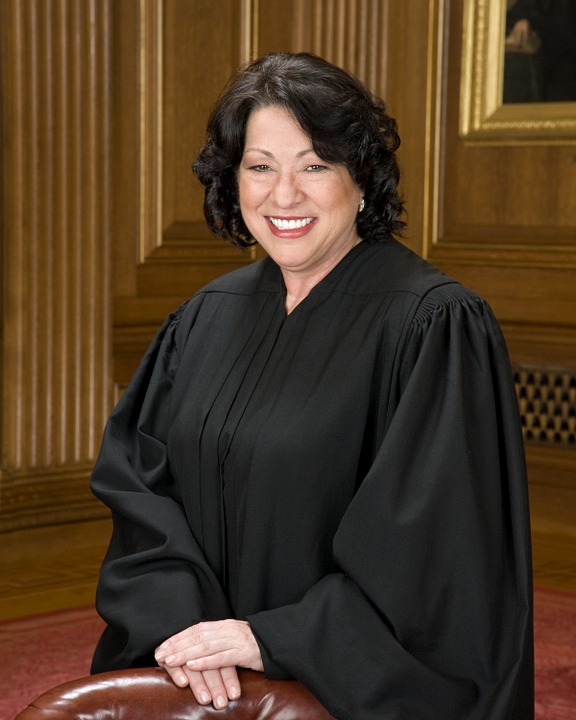Want to appeal a conviction or sentence?
When attempting to appeal a conviction in Colorado, the government’s expectation is for you to hurry up and wait. In a legal context, the appellate court is at a higher level than the trial court. Naturally, many aspects of the process of an appeal are heightened compared to the process of taking a case through trial; the stakes are higher, the penalties for a mistake a higher, and the burden of proof is higher for the party appealing.
To protect your interests, you have to file everything perfectly and before the deadline. Only, once you submit everything, you’ll be sitting around and waiting for about another six months to a year until you can submit a new argument.
The Colorado Rules for Appellate procedure are specific on every detail of everything filed with the court, all the way down to the font type and size on the submission. The penalty for violating a rule is a total forfeiture of your brief, or your right to appeal. Many of the rules have a subtle but powerful catch-all; “at the discretion of the Court of Appeals” means that the rules are the rules…until the Appellate judges don’t want that rule to apply. See our blog Colorado Rules for Appealing a Conviction for more information regarding some of the specific rules for filing an appeal.
What does an appeal look like?
An appeal is mostly written briefs. The briefs are mostly about law, compared to a lower court criminal case where most of the arguments are based on the facts of a case instead of legal nuances. It is an attorney’s job on an appeal to point out all the flaws in the lower court, how the procedure was not correctly followed, and those errors directly lead to an incorrect verdict or sentence. About half of appeals are all written briefs and never are argued in front of judges.
How do Appellate Judges Control The Courtroom if Appeals are Mostly Written?
The area where the court will exercise a considerable amount of discretion in every appeal regards due dates for filings. Colorado Rules for Appellate Procedure (C.A.R.) 26(b) states that “the Appellate Court for good cause shown may upon motion enlarge the time prescribed by these rules…” The key phrase in this rule is “for good cause”. This means that if the Appellate Court believes you deserve an extension they will give it to you, and if they don’t feel like you deserve it, you won’t get it.
There isn’t a clear legal rule for “good cause”, it is entirely subjective to the presiding judges’ opinion.

Designation of Transcripts
The designation of transcripts, a record of all trial court proceedings transcribed into a script form prepared by the clerk of the trial court, is required to be submitted to the Court of Appeals 9 weeks after starting an appeal. In reality, you can expect the designation of transcripts to be completed 3-4 months after the start of an appeal.
An appellate judge will be very sympathetic to a clerk working for them. If the clerk waits until the week it is due to start working on it and realizes it will take a month of diligent work to get completed, then they can just say they need more time to do it correctly and the court will grant them however long they want.
Opening Brief
The next document filed in an appeal is the Opening Brief. This is filed by the party appealing. There are 42 days to receive the Record on Appeal, review all the transcripts, develop all arguments, and submit the Opening Brief.
In appeals that contain a lot of filings, hearings, and one or more jury trials can contain thousands of pages to review. If the appealing party cannot review all the documents in time, they may file an extension.
In our experience, good cause usually translates to other hearings or trials happening in those 42 days that would force an attorney’s attention to other cases and not give enough time to review all the documents. The court will normally grant an extension, but rarely for as much time as requested.
In our experience, the court will normally grant half to three-quarters of the amount of time requested. When the appealing party requests an extension of time, the court has been known to say “no more extensions will be granted.” So, if the appealing party needs more time, they had better ask for the moon because they might get some of their requests but rarely all of it, and they probably won’t get another opportunity to ask.
Answer Brief
The Answer Brief is filed by the appellee, or non-appealing party, which is 99% of criminal cases is the government. This is where the longest extensions of time are normally seen. The C.A.R. rules state that the Answer is due 35 days after the Opening Brief. On average, one can expect the Answer Brief to be filed around a year after the Opening Brief.
In our experience, an extension of time for the answer brief is granted before a motion requesting an extension of time is even filed. Effectively, this means that the Court of Appeals finds that simply having to write the Answer Brief is good enough cause to grant an extension. Normally, the government will file one to two more extensions of time for the answer brief, only stating that they have other briefs they have to write. They are almost certainly granted without much of a second look.
Reply Brief
The final brief is the Reply Brief filed by the party appealing. The rules state the Reply Brief is due 21 days after the answer brief. The record has already been reviewed and arguments identified for the Opening Brief, so counsel has been tasked with counter-arguing the Answer Brief. Even though the amount of work is shortened, 21 days is not very long to perfect the last written argument for an appeal.
A request for an extension may be partially granted for an extremely good cause, although the standard is still the same “good cause”, the standard in practice is heightened because the presiding judge must be persuaded that it is necessary. Having two full jury trials during those 21 days might grant the appealing party another week or two, but there are never any guarantees for the appealing party.
Notice of Intent to Appeal
The only due date that the court of appeals is prohibited from extending, per C.A.R. 26 (b), is the 49 days after a final order due date for filing a Notice of Intent to Appeal.
It’s interesting to note, the government is NOT responsible for filing a Notice of Intent to Appeal in 99% of criminal appeals, only the person attempting to reverse the final judgment. A person cannot be tried for the same crime twice, so if someone is found not guilty during trial, the prosecutor cannot appeal for a new trial as a convicted defendant can. A prosecutor can appeal an acquittal verdict at trial, but it is extremely rare and would have to be based on a procedural issue.
The Notice of Intent to Appeal will be dismissed and the right to an appeal will be taken away if the Notice is turned in a second past the deadline. If you are sentenced to a charge that you want to appeal, you do not have the luxury to waste any time. Start the process, find an attorney, or at least ask the local public defender’s office to see if you qualify.
If you want to hire a private attorney, it is still fine to have the public defender’s office file the Notice of Intent because a private attorney can come in at any point in the litigation, and you will not have lost your right to appeal while shopping for lawyers. Once the deadline for the Notice of Intent to Appeal has passed, there is nothing anyone can do, even the Court of Appeals.
Oral Arguments
Oral arguments are not a required part of an appeals proceeding. A party may request for an oral argument once the Reply Brief has been filed. It again is up to the Appellate Court’s discretion if they believe oral arguments are necessary for them to understand the issues in the case. Oral arguments are normally set for six months after the Reply Brief has been filed.
The Attorney General’s Office handles all appeals in the State of Colorado, and only handles appeals. About half of all appeals will have an oral argument. Oral arguments are the sole occasion where counsel will appear in front of the appellate judges. Oral arguments last fifteen minutes and all judges will interrupt each party’s argument to ask clarifying questions. This requires the party representatives to think quickly on their feet or else potentially forfeit key aspects of their argument for lack of time.

Oral arguments are one area we feel as though there is an advantage to use against the Attorney General’s Office. As private counsel that deals with trial court cases as well as appellate cases, our office appears in front of judges in courtrooms every day. Every day, we are required to respond quickly and effectively to a judge’s questions while maintaining our overall argument. The Attorney General will sit in their office and work on written work for a majority of their job.
Our experience of arguing on our feet is invaluable in an appeal, where an issue can sound pro-government with a lot of fancy writing but appears much worse than on the written page when the person that wrote it cannot verbally articulate it. Our office requests an oral argument on every appeal.
In Summary
Anyone filing an appeal of a criminal conviction or modification of sentence can expect the appeal to last 2 and ½ – 3 years after they are sentenced. The rules are strict for an appeal, stricter than a lower court. The Court of Appeals judges can change a lot of the required parts of an appeal to whatever they deem necessary, and it is usually more necessary for the government to get an exception than it is for the appealing party. It is generally a good idea to request an oral argument to force the Attorney General to defend their arguments while on their feet.
Reach out to our office if you are considering appealing a criminal conviction or sentence. We have experience taking cases from the day a client is arrested through an appeal, as well as appealing a case done by another attorney. Any appeal requires an experienced attorney or faces the risk of misfiling, miscalculating, or missing a deadline, and not seeing the benefits of requesting an oral argument. Our office is very familiar with the rules and requirements of taking a case through the appeals process. Please call us at (303)-377-0100, email us, or come into our office at 78 W 11th Avenue, Denver, Colorado 80204 or call us after hours to discuss how we can help you immediately.
